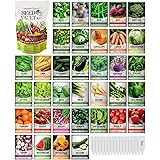SnugNiture Galvanized Raised Garden Bed Outdoor, 2 Pcs 4x2x1ft Oval Metal Planter Box for Planting Plants Vegetables, Brown
$52.99 (as of 13:34 GMT -05:00 - More infoProduct prices and availability are accurate as of the date/time indicated and are subject to change. Any price and availability information displayed on [relevant Amazon Site(s), as applicable] at the time of purchase will apply to the purchase of this product.)Best Choice Products 6x3x2ft Outdoor Metal Raised Garden Bed, Deep Root Box Planter for Vegetables, Flowers, Herbs, and Succulents w/ 269 Gallon Capacity - Gray
35% OffComposting has become an increasingly popular topic in recent years, and it’s no wonder why. With more people becoming aware of the importance of sustainability, composting offers a simple yet effective solution to reducing waste while also creating nutrient-rich soil for gardening. In this blog post, we will explore everything you need to know about composting, including its benefits, how to get started, common mistakes to avoid, and why it’s such an essential part of sustainable living.
Introduction to Composting: What It Is and Why You Should Do It
Composting is the process of breaking down organic matter into a rich, nutritious soil that can be used for gardening. This process involves collecting food scraps, yard waste, and other organic materials and placing them in a bin or pile where they can decompose naturally. The end result is a dark, earthy substance that is teeming with beneficial bacteria and fungi that can help improve soil health and boost plant growth.
The Benefits of Composting for Your Garden and the Environment
There are many reasons why composting is so great for both your garden and the environment. First and foremost, it reduces waste by diverting organic material from landfills. According to the EPA, food waste makes up 21% of all municipal solid waste, which equates to over 37 million tons of waste per year. By composting, you can reduce the amount of waste that ends up in landfills, helping to conserve natural resources and reduce greenhouse gas emissions.
In addition to reducing waste, composting also provides numerous benefits for your garden. Compost adds vital nutrients to the soil, improves soil structure, and helps retain moisture. This means that plants grow stronger, healthier, and more resistant to disease. Additionally, because compost contains beneficial microorganisms, it can help promote healthy root development and increase yields.
How to Get Started with Composting at Home
Getting started with composting is easy! All you need is a bit of space, some basic equipment, and a willingness to learn. Here are the steps to getting started:
1. Choose a location: Look for a spot in your yard that gets plenty of sunlight and is easily accessible. If you live in an apartment or don’t have outdoor space, consider investing in a vermiculture kit, which allows you to compost indoors using worms.
2. Purchase or build a composter: There are many different types of composters available, ranging from tumblers to stationary bins. You can purchase one online or at your local hardware store, or you can even build your own using pallets or wooden crates.
3. Collect your ingredients: To start composting, you’ll need three main ingredients: brown material (such as leaves or shredded paper), green material (such as food scraps or grass clippings), and water. You’ll also want to add some airflow to your compost pile to ensure that it stays aerobic.
4. Mix your ingredients: Once you have your ingredients gathered, mix them together in your composter. Be sure to layer your browns and greens, and try to keep your pile damp but not too wet.
5. Monitor your progress: Keep an eye on your compost pile to make sure that it’s decomposing properly. If it starts to smell bad or looks moldy, you may need to adjust your mixture or turn your pile more frequently.
Mistakes to Avoid When Composting and How to Fix Them
While composting is relatively straightforward, there are still some common mistakes that beginners often make. Here are a few things to watch out for:
1. Not mixing your ingredients correctly: If you don’t mix your browns and greens properly, your pile could become either too dry or too wet, leading to slow decomposition or odor problems. Make sure to follow the guidelines above when building your pile.
2. Not turning your pile enough: Turning your pile regularly helps to aerate it and speed up the decomposition process. If you notice that your pile isn’t decomposing quickly enough, try turning it more frequently.
3. Adding prohibited items: Certain items, like meat, dairy products, or pet waste, should never go in your compost pile. These items can attract rodents or cause odor issues. Stick to vegetative matter only.
Conclusion: Taking Action Towards Sustainable Living Through Composting
Composting is a simple yet powerful way to take action towards sustainable living. By reducing waste, promoting healthy soil, and encouraging responsible resource use, composting can benefit both individuals and communities alike. Whether you’re new to composting or looking to refine your skills, we hope this guide has given you the information you need to get started. So what are you waiting for? Start composting today and join the movement towards a more sustainable future!














































